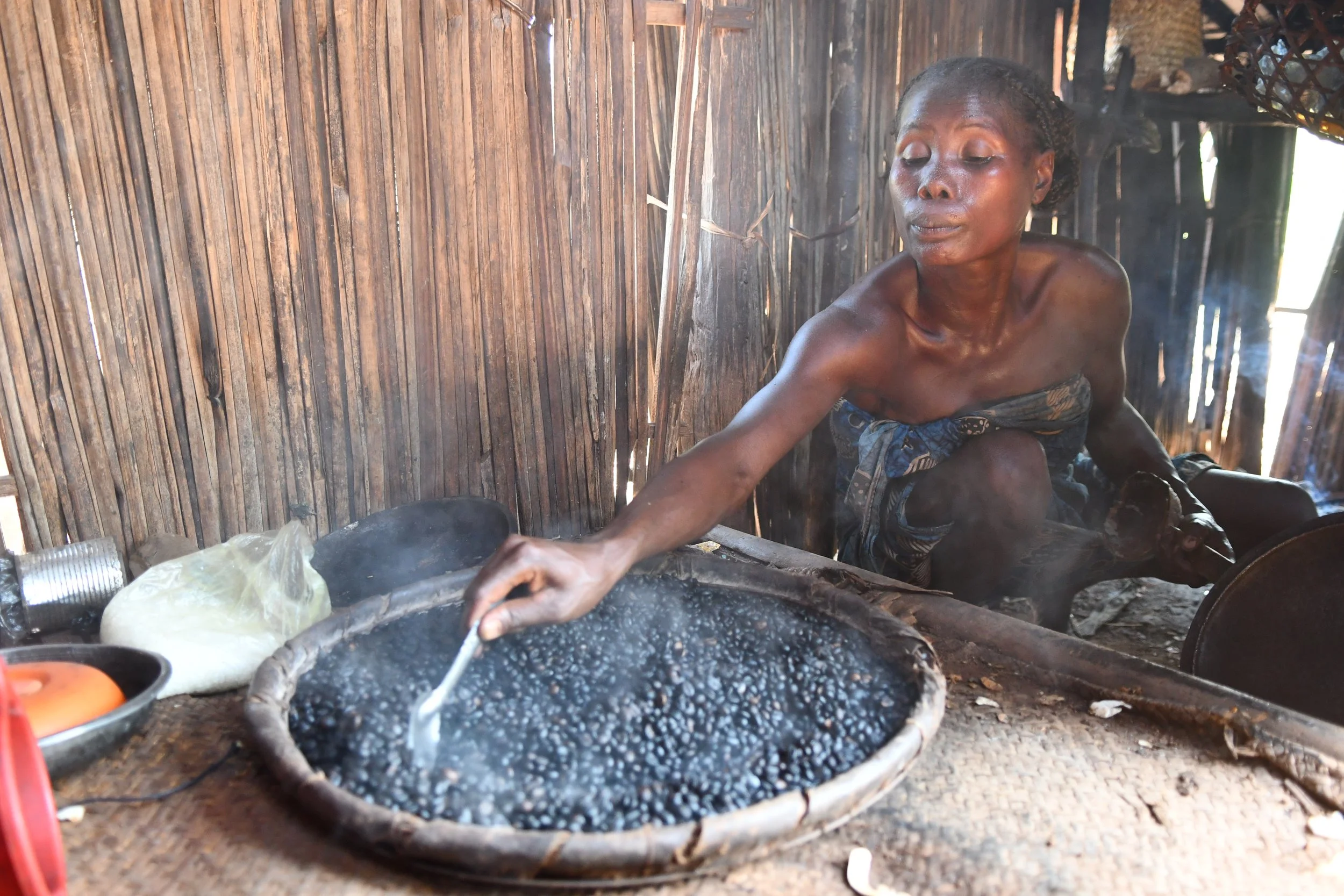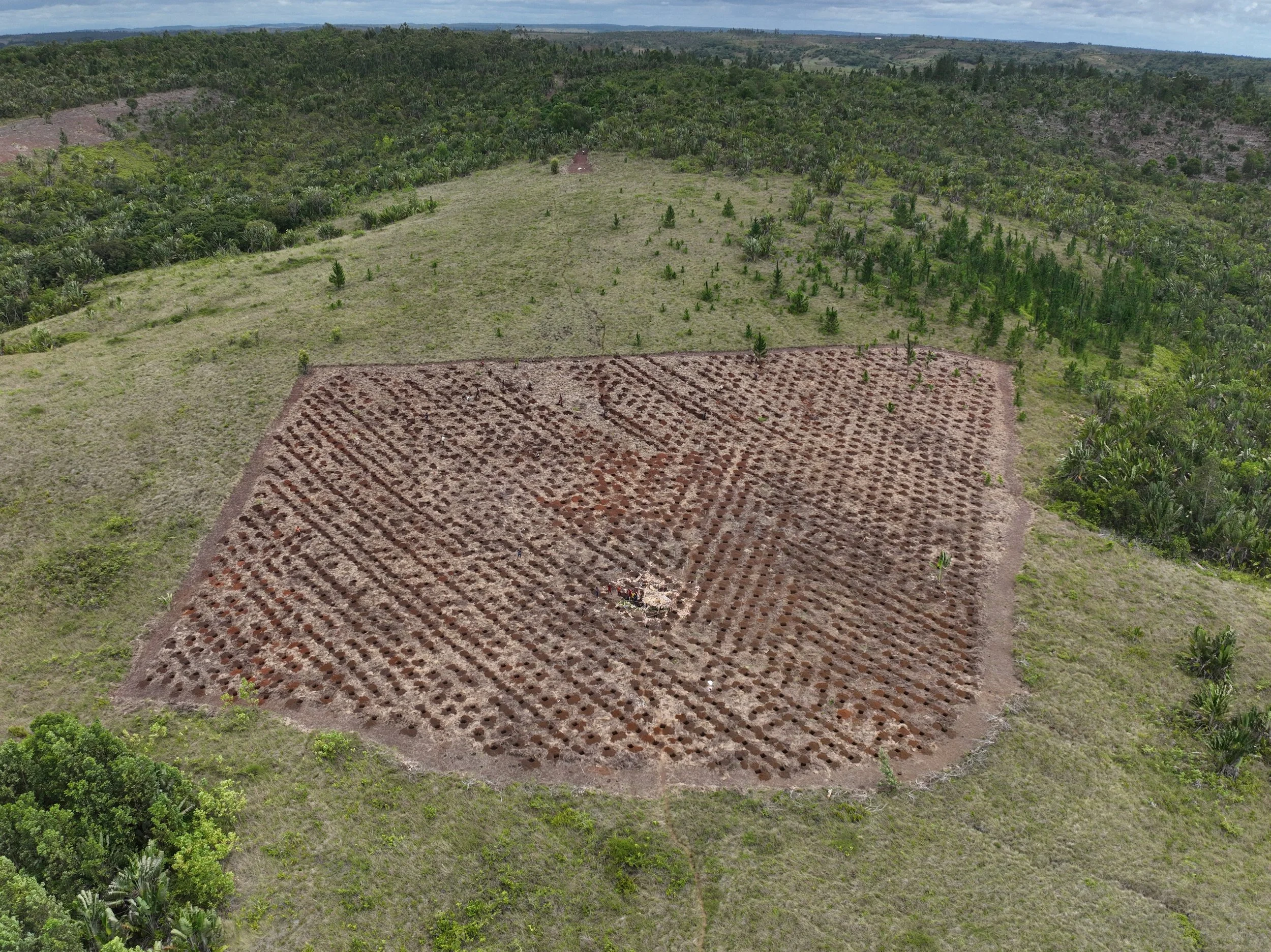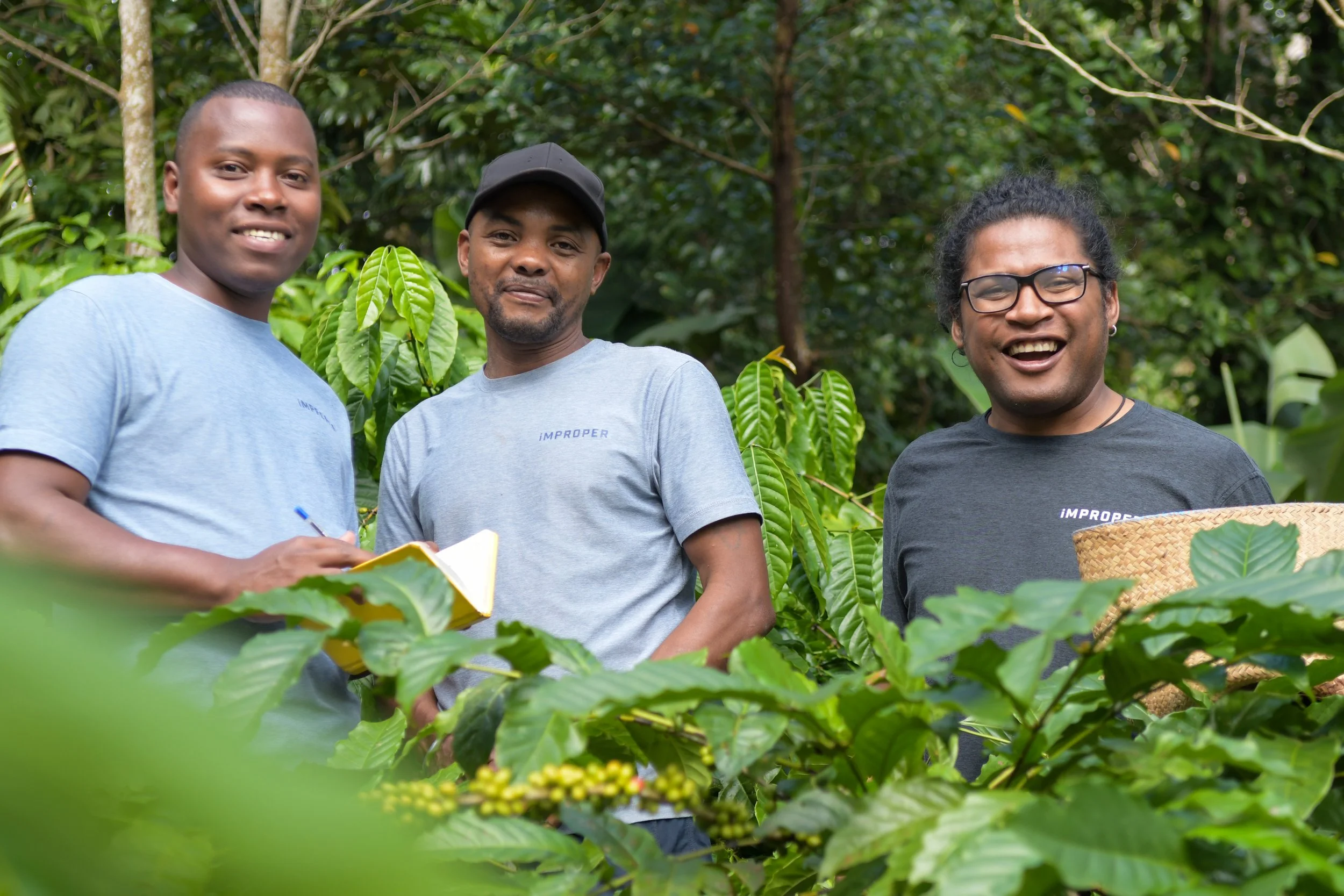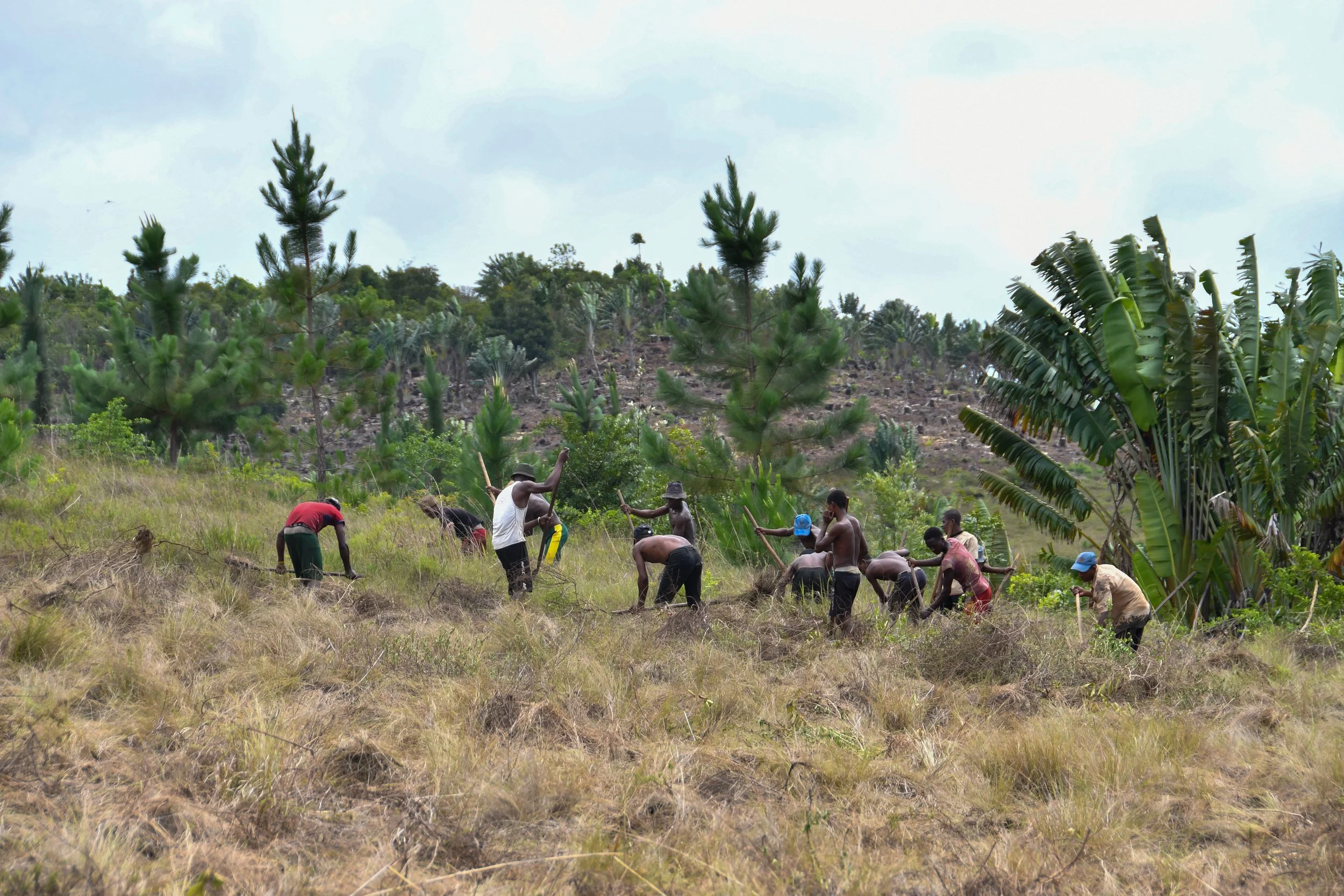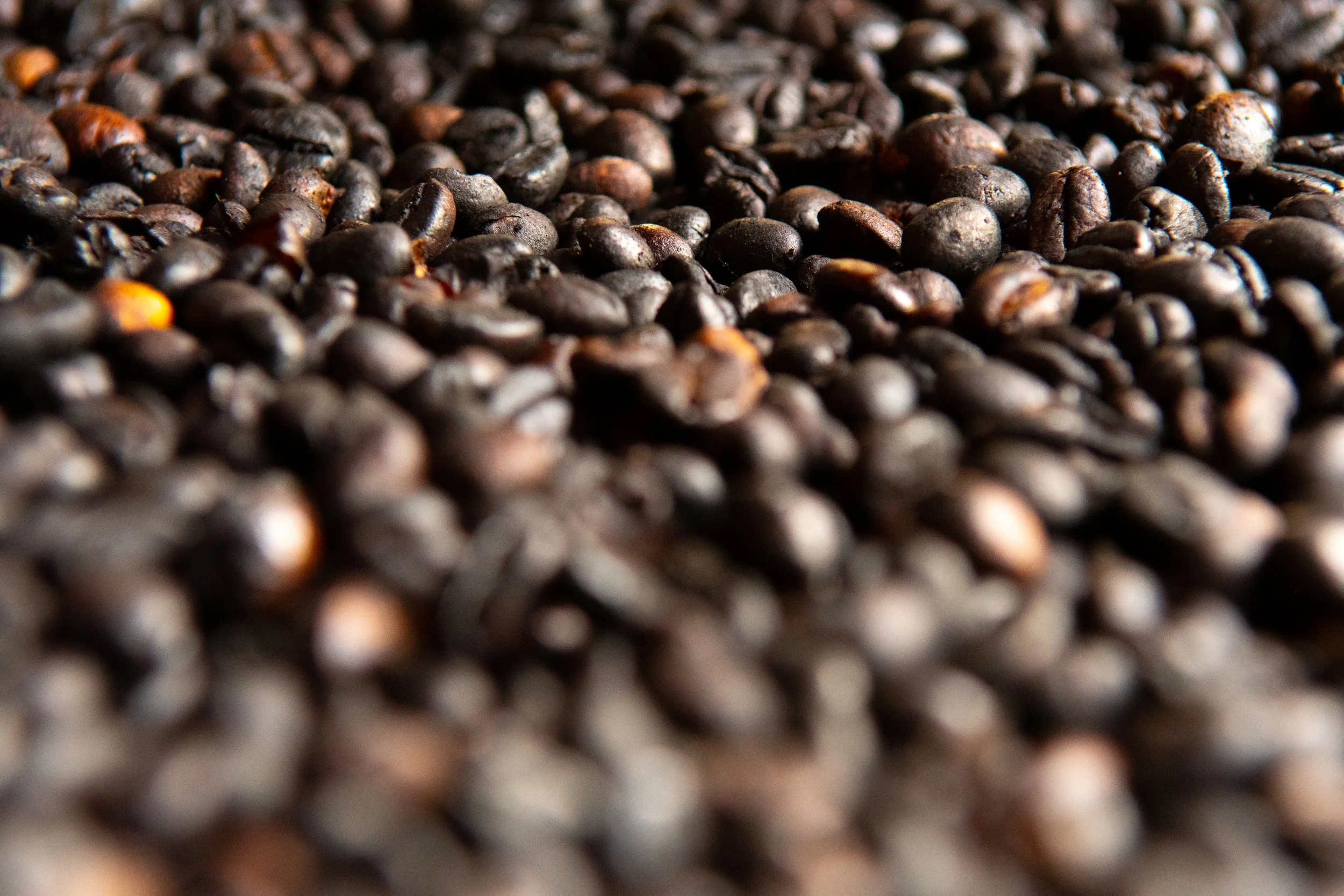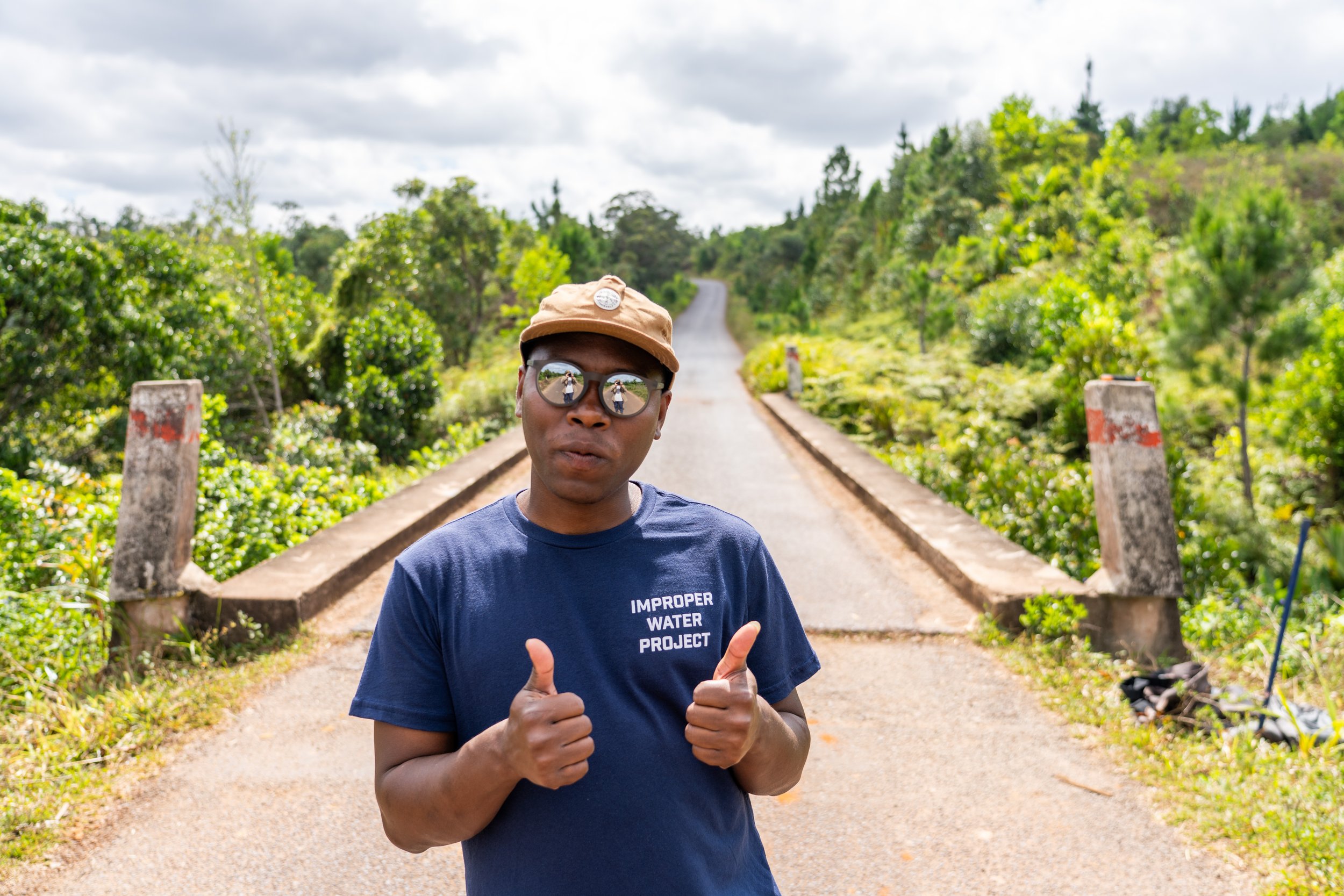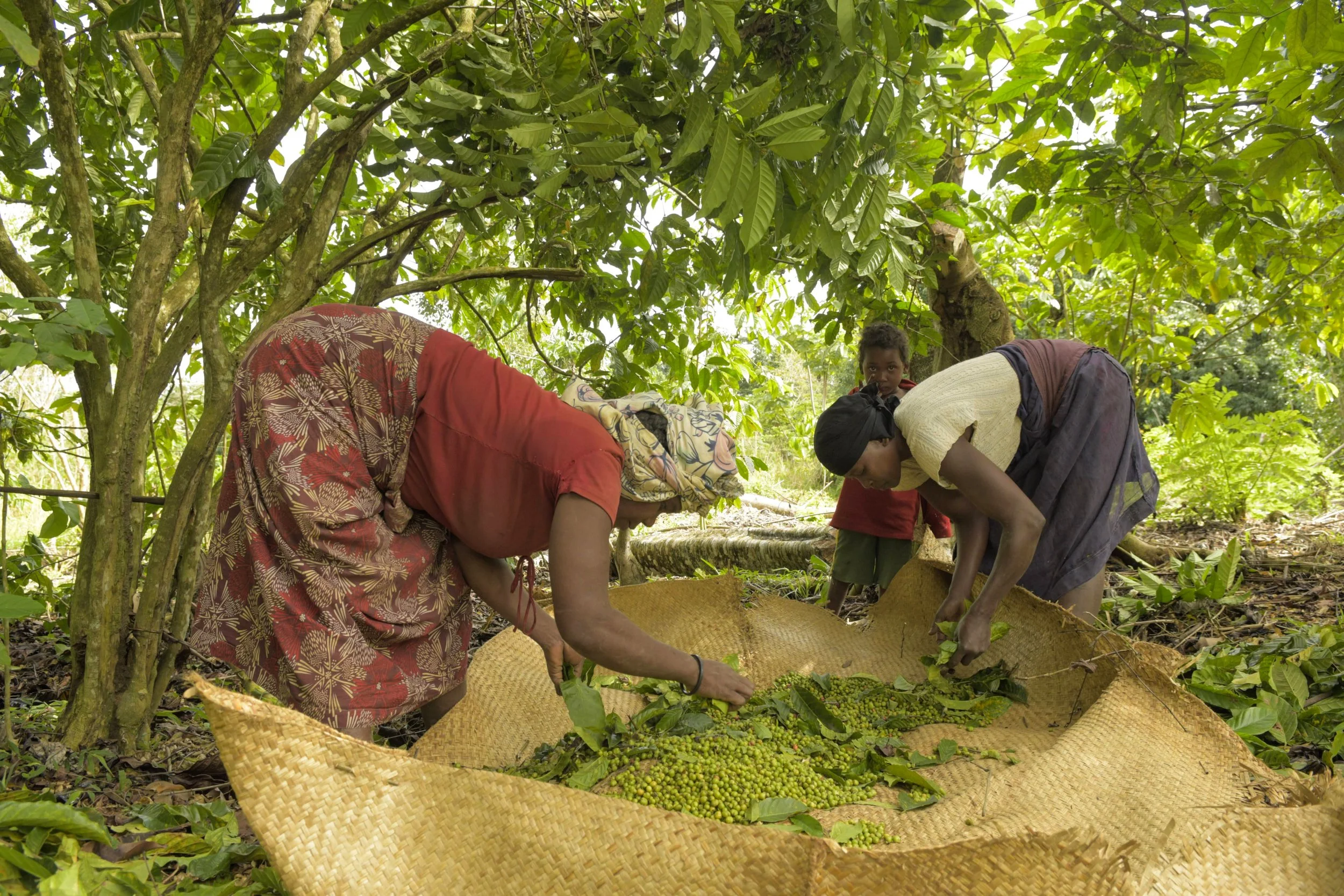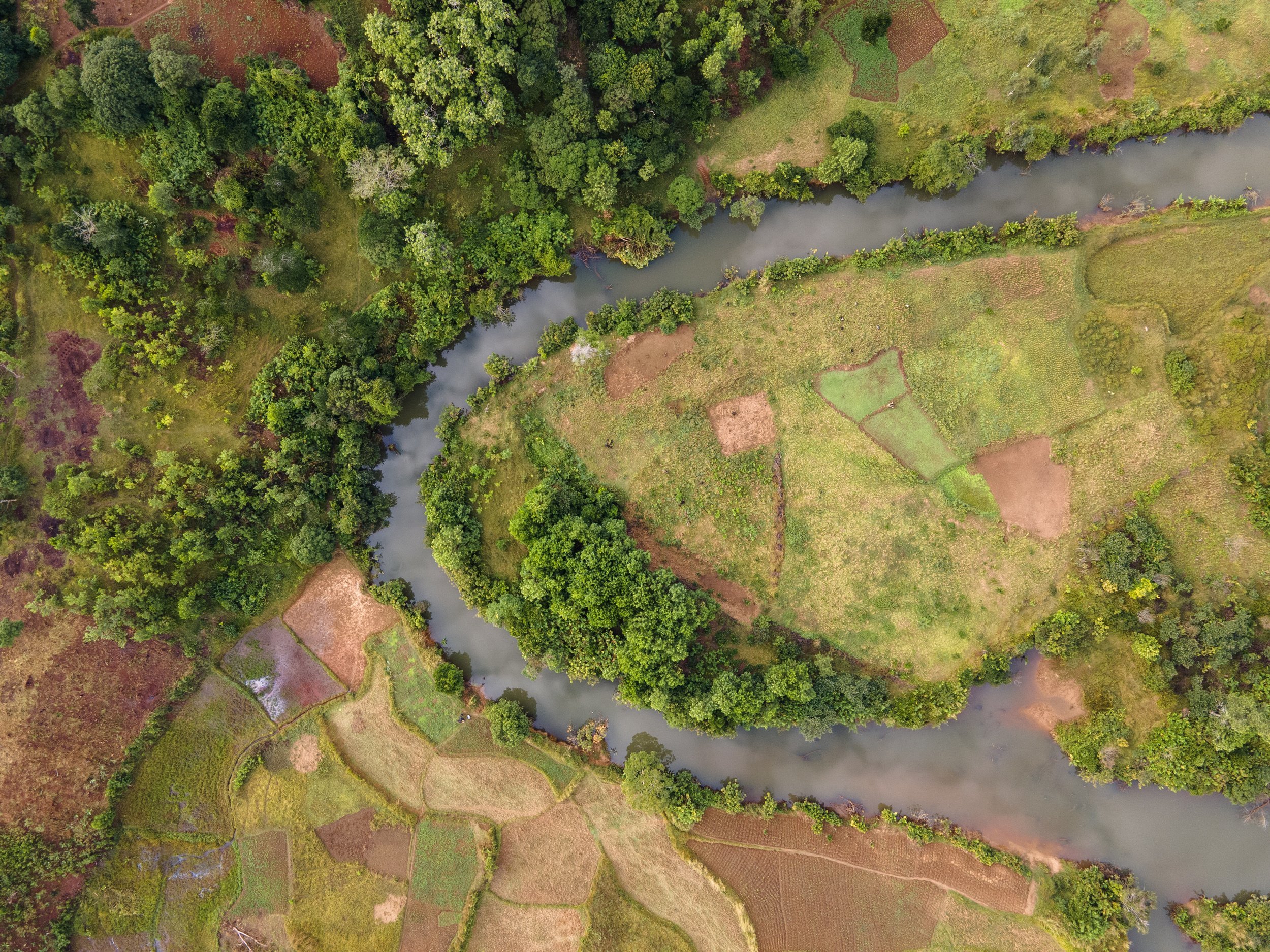
Madagascar
We are a registered non-profit organization in Madagascar, working in a network of rural villages around the Manombo Special Reserve (MSR) along the southeastern coast of Madagascar to improve human health and livelihoods. Our current efforts focus on developing clean water infrastructure and coffee-centered agroforestry systems.
Improper'’s team in Madagascar consists of scientists, storytellers, and field experts. In 2023 and 2024, we tested the drinking water sources in a series of these villages. Our results indicated alarmingly high levels of bacterial contamination.
To address this problem, we started developing rainwater catchment tanks to provide clean, safe drinking water for the people in these villages. We just finished a pilot project, constructing 60 household-level tanks in 3 of the villages.
We are currently reforesting 5 acres of Improper-owned land in the MSR to improve drinking water quality, water-related health outcomes, and grow coffee to be sold in the U.S. that provides livelihood opportunities for the people in this region.
Here is a video about our construction of 60 household-level tanks in 3 of the villages in the MSR.
Replanting degraded land with shade-grown coffee trees stabilizes soils, reduces erosion, and increases water infiltration, which in turn improves the water quality of streams and reduces standing water that can contribute to disease. We buy coffee directly from local farmers at fair prices, sell it in the United States, and reinvest 100% of the profits into clean water projects in the same communities. This approach creates a self-sustaining, local-to-global model where environmental restoration, public health improvements, and economic growth all reinforce one another. At the same time, we are quantifying the carbon sequestration benefits of our agroforestry efforts to generate carbon credits on the voluntary global carbon market—transforming our work not just into a one-time reactionary response, but a replicable, long-term solution for planetary health.
